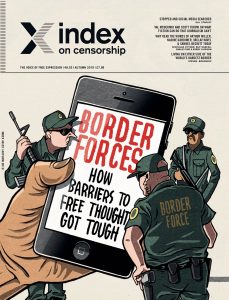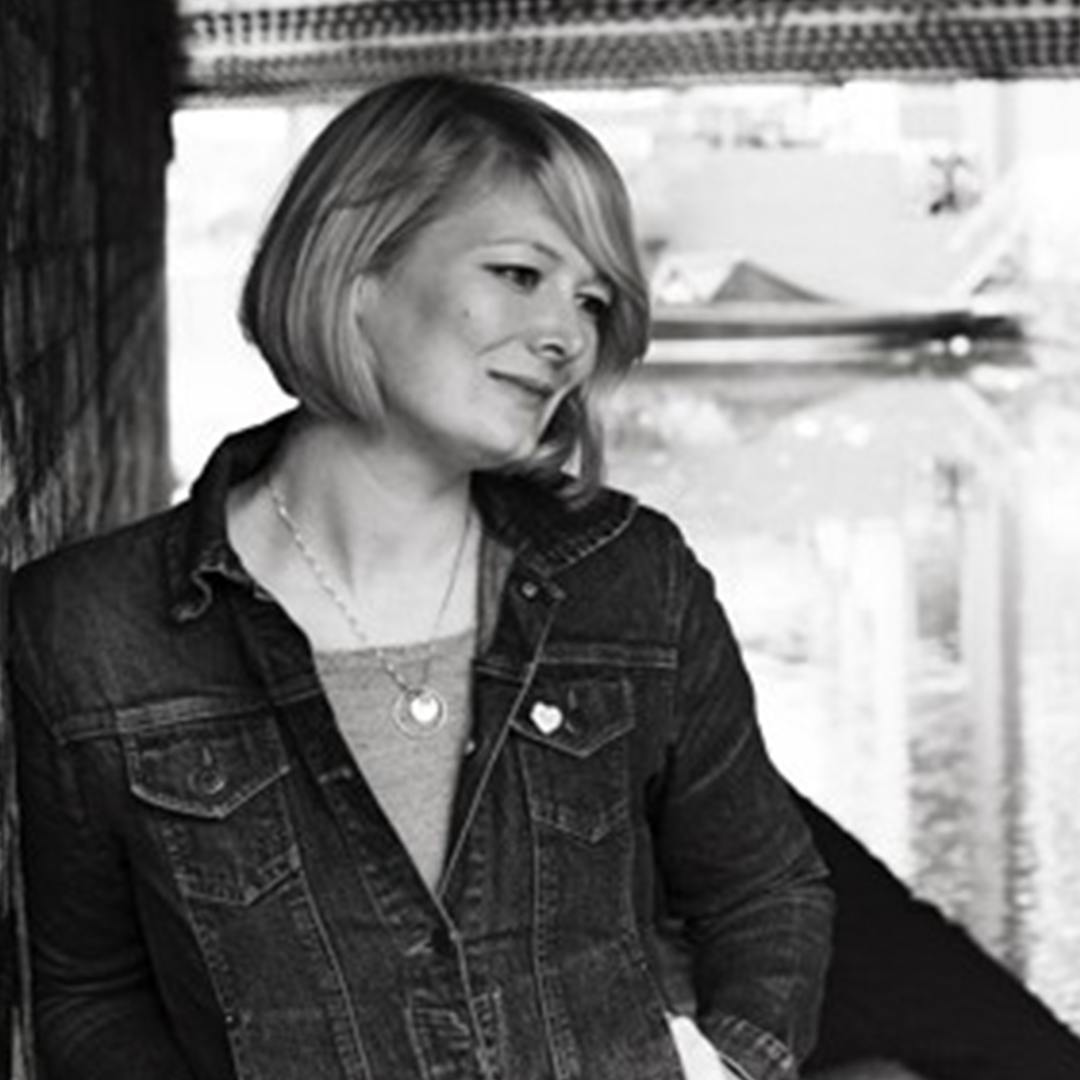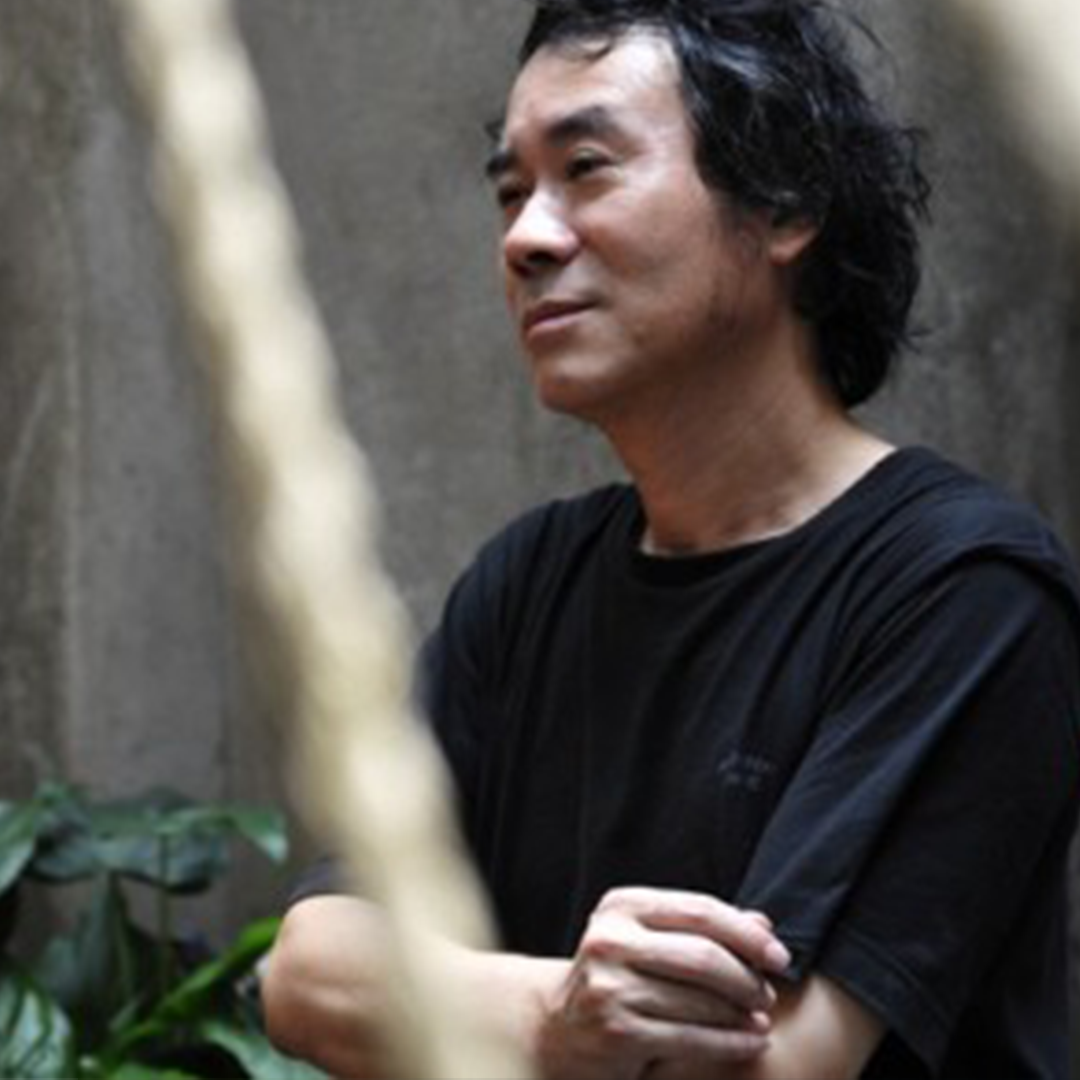31 Mar 2025 | About Index, Americas, Asia and Pacific, China, Europe and Central Asia, Georgia, Hong Kong, India, News and features, Newsletters, Russia, United States
I have a recurring nightmare: I somehow find myself in China. I’m having a great time until I realise I work at Index, might be on a blacklist, and could get arrested at any moment. When I tell my nightmare to people who work in the China human rights space they always reply with the same reassurance: “It would never come to that – you’d simply be denied a visa to begin with or turned away at the border.” After all, such has been the case for several people in our field, most notably Benedict Rogers of Hong Kong Watch and Aleksandra Bielakowska from Reporters Without Borders (RSF) – both sent back on a plane from Hong Kong airport before setting foot in the territory.
This isn’t a China story; it’s a global one. In the article Be nice, or you’re not coming in, which featured in the Spring 2024 edition of our magazine, Salil Tripathi wrote about how critics of Indian Prime Minister Narendra Modi were being denied entry to the country. Penny Vera-Sanso of Birkbeck University in London, Lindsay Bremner from University of Westminster and University of Sussex’s Filippo Osella – all three were turned away upon arrival. Georgia has also perfected the art of entry denial. Following Russia’s full-scale invasion of Ukraine, scores of independent Russian journalists weren’t allowed in, no reason given. The same happened recently to Lithuanian women’s rights advocate Regina Jegorova-Askerova, who was stopped at the border despite Georgia being her home for the past 15 years and her having family there.
Is the USA joining the club? Last week, a French scientist was denied entry to the country. The French government claims it’s because of his criticism of Donald Trump. The US government says it’s instead because he was carrying confidential information on an electronic device, which violated a non-disclosure agreement. A week before this, several members of the British punk band U.K. Subs were turned back at Los Angeles International Airport (LAX). Bassist Alvin Gibbs wondered whether this was because of his public criticisms of Trump or whether that theory was just paranoia. Perhaps we are all jumping to the worst conclusions, but inciting paranoia can be intentional – and it’s certainly infectious. In the past few days, several people have spoken to me about whether they should delete their messaging apps and social media profiles before travelling to the USA, or, for those already there, whether it’s wise to leave, fearing they won’t be allowed back in.
Hong Kong, Georgia, India, the USA – places once regarded as relatively liberal – are now part of a troubling trend where dissenters are kept out with the stroke of a pen. This is the new reality: autocrats share tactics, and the freedom to travel is becoming a privilege, not a right.
29 Oct 2019 | Index in the Press

Border Forces – how barriers to free thought got tough
Index on Censorship magazine editors Jemimah Steinfeld and Rachael Jolley have been discussing the latest issue, which looks at border surveillance and its implications for free expression, in an interview with Resonance Radio. They talk about how journalists are being stopped at borders while travelling by officials demanding their social media passwords and access to their photographs, phones, laptops and other devices.
They ask whether any of us would want our personal information being scrutinised and maybe denying us access to certain countries – a particular problem for the LGBT community – and wonder if deleting certain information or leaving technology at home is the answer. But also under discussion was how this might lead to people feeling they couldn’t speak out or criticise governments.
And it’s not only physical borders that cause problems – ideas and art are also coming up against obstacles and even phone calls are restricted.
Tech journalist Geoff White also joins them to discuss how much information facial recognition technology can reveal about us – and how you can hide your account numbers but you can’t change your face.
What are the implications for free expression and for investigative journalism?
12 Sep 2019 | Magazine, Magazine Contents, Volume 48.03 Autumn 2019
[vc_row][vc_column][vc_custom_heading text=”With contributions from Kerry Hudson, Chen Xiwo, Elif Shafak, Meera Selva, Steven Borowiec, Brian Patten and Dean Atta”][/vc_column][/vc_row][vc_row][vc_column][vc_column_text]

Border forces – how barriers to free thought got tough
The autumn 2019 Index on Censorship magazine looks at how borders are getting tougher, journalists are being stopped, visas refused and border officials are snooping into our social media profiles and personal messages. Nations are looking to surveil our thoughts before allowing us to come into their countries and so limiting freedom of expression and the free flow of ideas.
In this issue Steven Borowiec reports from South Korea about how the law means that you can be prosecuted for contacting your relatives in the north without permission; Meera Selva looks at how internet shutdowns are being used round the world to prevent people communicating, most recently in Kashmir; Mark Frary gives tips for LGBT people on how to protect themselves when crossing borders into countries where they might face discrimination. Charlotte Bailey and Jan Fox look at how it is getting tougher in the UK and USA for artists, writers and academics to get visas; and Kaya Genç digs into Turkey’s censorship of the internet. In the rest of the magazine, writers Emilie Pine, Elif Shafak and Kerry Hudson, and theatre director Nicholas Hytner reflect on past famous Index contributors, Václav Havel, Nadine Gordimer, Samuel Beckett and Arthur Miller. We have an extract of the script of the 1977 film Le Camion by Marguerite Duras which has never appeared in English before, and poems by taboo-breaking poet Dean Atta and the Liverpool Poet Brian Patten. We also have an extract of a story by censored Chinese writer Chen Xiwo about a mother and her daughter and their abusive relationship. Plus Index magazine’s first ever crossword by Herbashe.
[/vc_column_text][/vc_column][/vc_row][vc_row][vc_column][vc_custom_heading text=”Special Report: Border forces: how barriers to free thought got tough”][/vc_column][/vc_row][vc_row][vc_column][vc_column_text]Big brother at the border by Rachael Jolley
Switch off, we’re landing! by Kaya Genç Be prepared that if you visit Turkey online access is restricted
Culture can “challenge” disinformation by Irene Caselli Migrants trying to cross the Mediterranean to Europe are often seen as statistics, but artists are trying to tell stories to change that
Lines of duty by Laura Silvia Battaglia It’s tough for journalists to visit Yemen, our reporter talks about how she does it
Locking the gates by Jan Fox Writers, artists, academics and musicians are self-censoring as they worry about getting visas to go to the USA
Reaching for the off switch by Meera Selva Internet shutdowns are growing as nations seek to control public access to information
Hiding your true self by Mark Frary LGBT people face particular discrimination at some international borders
They shall not pass by Stephen Woodman Journalists and activists crossing between Mexico and the USA are being systematically targeted, sometimes sent back by officials using people trafficking laws
“UK border policy damages credibility” by Charlotte Bailey Festival directors say the UK border policy is forcing artists to stop visiting
Ten tips for a safe crossing by Ela Stapley Our digital security expert gives advice on how to keep your information secure at borders
Export laws by Ryan Gallagher China is selling on surveillance technology to the rest of the world
At the world’s toughest border by Steven Borowiec South Koreans face prison for keeping in touch with their North Korean family
Stripsearch by Martin Rowson Bees and herbaceous borders
Inside the silent zone by Silvia Nortes Journalists are being stopped from reporting the disputed north African Western Sahara region
The great news wall of China by Karoline Kan China is spinning its version of the Hong Kong protests to control the news
Kenya: who is watching you? by Wana Udobang Kenyan journalist Catherine Gicheru is worried her country knows everything about her
Top ten states closing their doors to ideas by Mark Frary We look at countries which seek to stop ideas circulating[/vc_column_text][/vc_column][/vc_row][vc_row disable_element=”yes”][vc_column][vc_custom_heading text=”Global View”][vc_column_text]Small victories do count by Jodie Ginsberg The kind of individual support Index gives people living under oppressive regimes is a vital step towards wider change[/vc_column_text][/vc_column][/vc_row][vc_row][vc_column][vc_custom_heading text=”In Focus”][vc_column_text]Germany’s surveillance fears by Cathrin Schaer Thirty years on from the fall of the Berlin wall and the disbanding of the Stasi, Germans worry about who is watching them
Freestyle portraits by Rachael Jolley Cartoonists Kanika Mishra from India, Pedro X Molina from Nicaragua and China’s Badiucao put threats to free expression into pictures
Tackling news stories that journalists aren’t writing by Alison Flood Crime writers Scott Turow, Val McDermid, Massimo Carlotto and Ahmet Altan talk about how the inspiration for their fiction comes from real life stories
Mosul’s new chapter by Omar Mohammed What do students think about the new books arriving at Mosul library, after Isis destroyed the previous building and collection?
The [REDACTED] crossword by Herbashe The first ever Index crossword based on a theme central to the magazine
Cries from the last century and lessons for today by Sally Gimson Nadine Gordimer, Václav Havel, Samuel Beckett and Arthur Miller all wrote for Index. We asked modern day writers Elif Shafak, Kerry Hudson and Emilie Pine plus theatre director Nicholas Hytner why the writing is still relevant
In memory of Andrew Graham-Yooll by Rachael Jolley Remembering the former Index editor who risked his life to report from Argentina during the worst years of the dictatorship[/vc_column_text][/vc_column][/vc_row][vc_row][vc_column][vc_custom_heading text=”Culture”][vc_column_text]Backed into a corner by love by Chen Xiwo A newly translated story by censored Chinese writer about the abusive relationship between a mother and daughter plus an interview with the author
On the road by Marguerite Duras The first English translation of an extract from the screenplay of the 1977 film Le Camion by one of the greatest French writers of the 20th century
Muting young voices by Brian Patten Two poems, one written exclusively for Index, about how the exam culture in schools can destroy creativity by the Liverpool Poet
Finding poetry in trauma by Dean Atta Male rape is still a taboo subject, but very little is off-limits for this award-winning writer from London who has written an exclusive poem for Index[/vc_column_text][/vc_column][/vc_row][vc_row][vc_column][vc_custom_heading text=”Column”][vc_column_text]Index around the world: Tales of the unexpected by Sally Gimson and Lewis Jennings Index has started a new media monitoring project and has been telling folk stories at this summer’s festivals[/vc_column_text][/vc_column][/vc_row][vc_row][vc_column][vc_custom_heading text=”Endnote”][vc_column_text]Endnote: Macho politics drive academic closures by Sally Gimson Academics who teach gender studies are losing their jobs and their funding as populist leaders attack “gender ideology”[/vc_column_text][/vc_column][/vc_row][vc_row][vc_column width=”1/3″][vc_custom_heading text=”Subscribe”][vc_column_text]In print, online, in your mailbox, on your iPad.
Subscription options from £18 or just £1.49 in the App Store for a digital issue.
Every subscriber helps support Index on Censorship’s projects around the world.
 SUBSCRIBE NOW[/vc_column_text][/vc_column][vc_column width=”1/3″][vc_custom_heading text=”Read”][vc_column_text]The playwright Arthur Miller wrote an essay for Index in 1978 entitled The Sin of Power. We reproduce it for the first time on our website and theatre director Nicholas Hytner responds to it in the magazine
SUBSCRIBE NOW[/vc_column_text][/vc_column][vc_column width=”1/3″][vc_custom_heading text=”Read”][vc_column_text]The playwright Arthur Miller wrote an essay for Index in 1978 entitled The Sin of Power. We reproduce it for the first time on our website and theatre director Nicholas Hytner responds to it in the magazine
READ HERE[/vc_column_text][/vc_column][vc_column width=”1/3″][vc_custom_heading text=”Listen”][vc_column_text]In the Index on Censorship autumn 2019 podcast, we focus on how travel restrictions at borders are limiting the flow of free thought and ideas. Lewis Jennings and Sally Gimson talk to trans woman and activist Peppermint; San Diego photojournalist Ariana Drehsler and Index’s South Korean correspondent Steven Borowiec
LISTEN HERE[/vc_column_text][/vc_column][/vc_row]
12 Sep 2019 | Magazine, Magazine Editions, Volume 48.03 Autumn 2019
Novelist
Elif Shafak is an award-winning Turkish novelist and advocate for free expression. Her latest novel 10 Minutes 38 Seconds in This Strange World has been long-listed for the Booker Prize.
Novelist
The award-winning novelist Kerry Hudson’s memoir Lowborn captured the imagination of the British public this year because of her vivid description of her dysfunctional family and growing up in poverty in the UK.
Writer
Chen Xiwo is a censored Chinese author, most famous for his collection of stories The Book of Sins which was published in English in 2014. His controversial novella I Love My Mum remains banned in China




